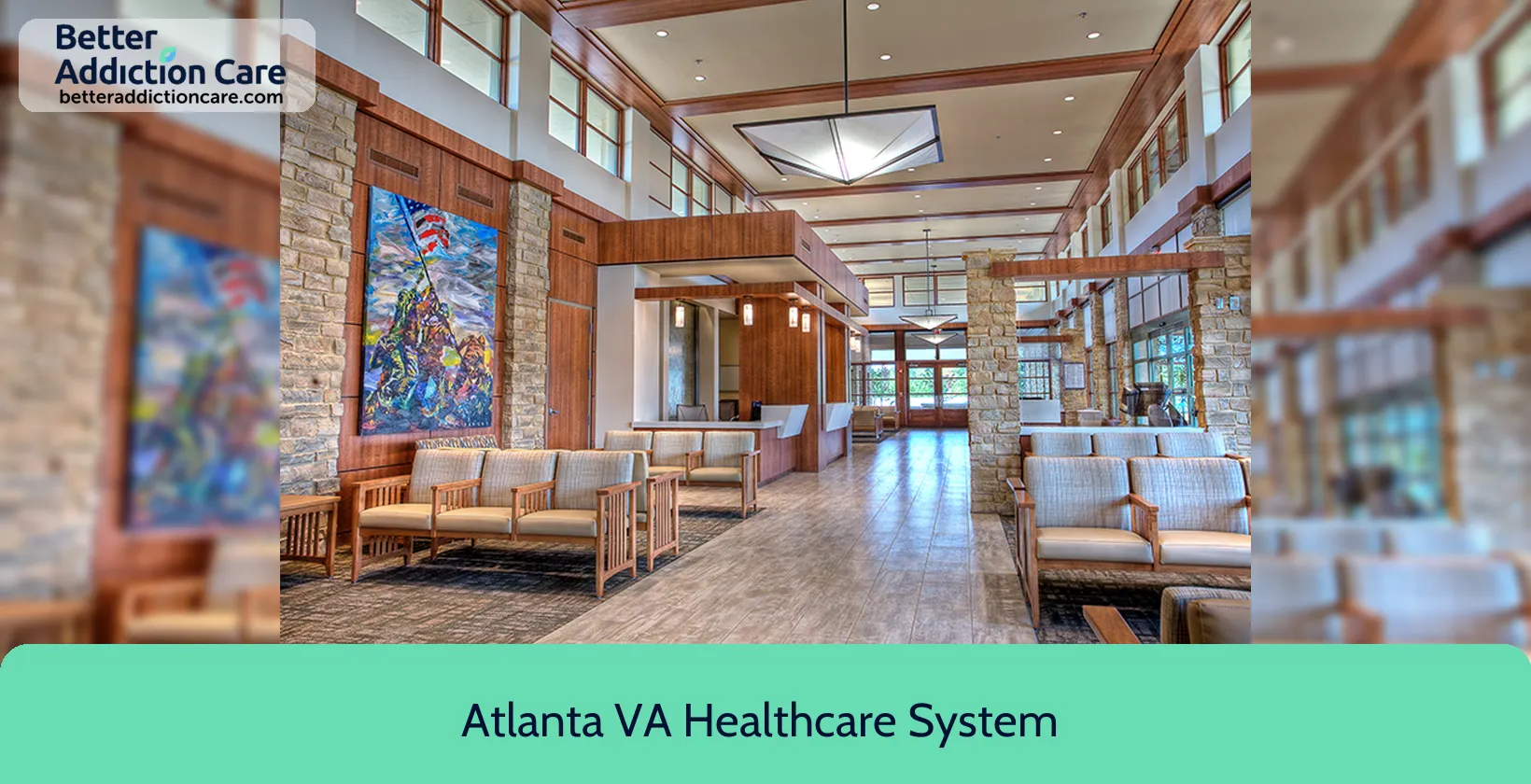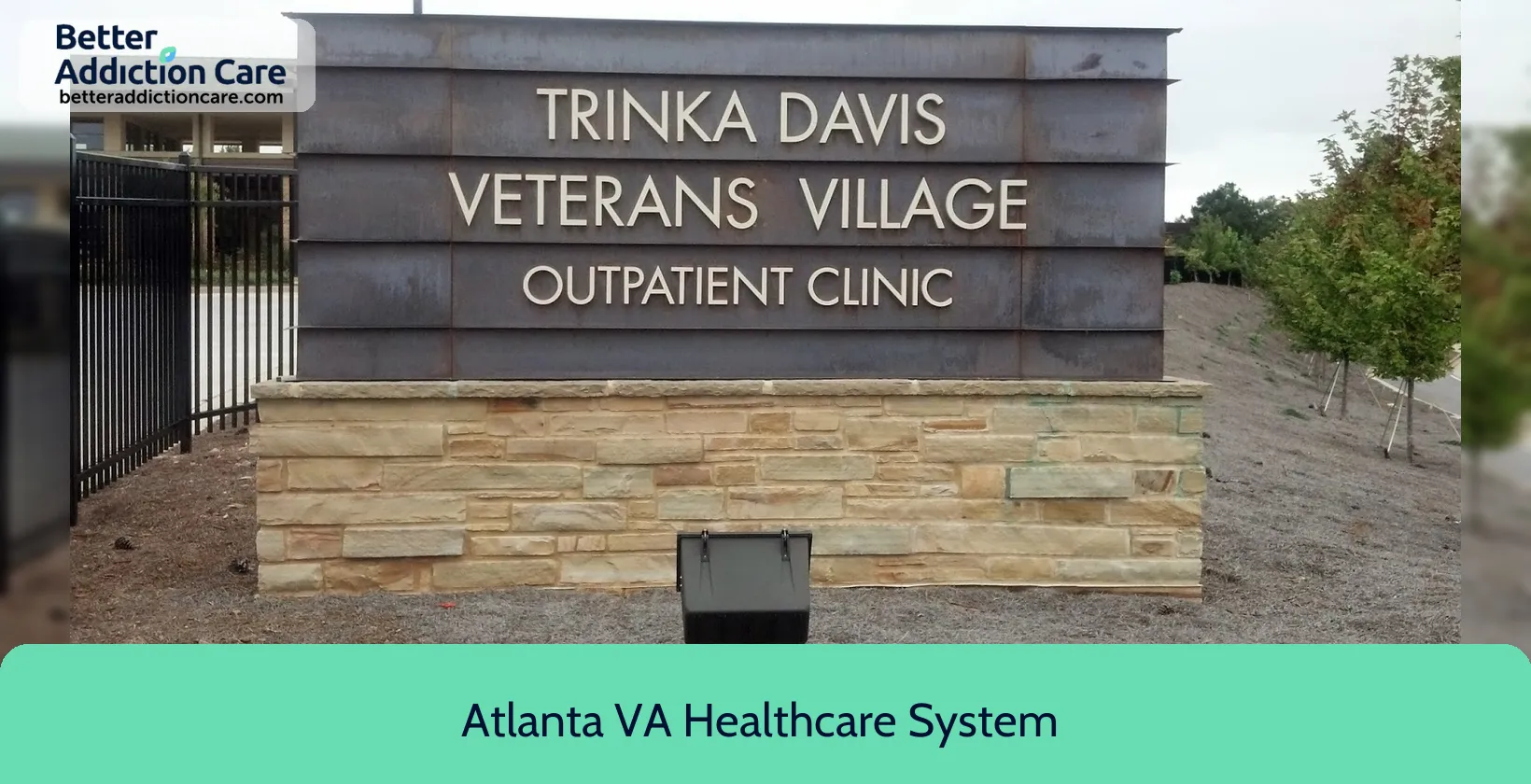Atlanta VA Healthcare System - Trinka Davis Veterans Village Clinic
Overview
Atlanta VA Healthcare System - Trinka Davis Veterans Village Clinic is a mental health treatment center for people seeking treatment near Carroll County. As part of their treatment modalities for recovery, Atlanta VA Healthcare System - Trinka Davis Veterans Village Clinic provides couples/family therapy, group counseling, and cognitive behavioral therapy during treatment. Atlanta VA Healthcare System - Trinka Davis Veterans Village Clinic is located in Carrollton, Georgia, accepting cash or self-payment for treatment.
Atlanta VA Healthcare System - Trinka Davis Veterans Village Clinic at a Glance
Payment Options
- Cash or self-payment
- Private health insurance
- U.S. Department of VA funds
- Payment assistance (check with facility for details)
Assessments
- Screening for tobacco use
- Comprehensive mental health assessment
- Comprehensive substance use assessment
Age Groups
- Seniors or older adults
- Young adults
- Adults
- Seniors
Ancillary Services
- Assertive community treatment
- Chronic disease/illness management
- Diet and exercise counseling
- Family psychoeducation
- Illness management and recovery
Highlights About Atlanta VA Healthcare System - Trinka Davis Veterans Village Clinic
6.62/10
With an overall rating of 6.62/10, this facility has following balanced range of services. Alcohol Rehabilitation: 8.00/10, Drug Rehab and Detox: 6.00/10, Insurance and Payments: 6.00/10, Treatment Options: 6.49/10.-
Alcohol Rehabilitation 8.00
-
Treatment Options 6.49
-
Drug Rehab and Detox 6.00
-
Insurance and Payments 6.00
Treatment At Atlanta VA Healthcare System - Trinka Davis Veterans Village Clinic
Treatment Conditions
- Mental health treatment
- Substance use treatment
- Co-occurring Disorders
Care Levels
- Outpatient
Treatment Modalities
- Couples/family therapy
- Group counseling
- Cognitive behavioral therapy
- Telemedicine/telehealth therapy
- Smoking/vaping/tobacco cessation counseling
Ancillary Services
Special Programs
- Clients with co-occurring mental and substance use disorders
- Veterans
- Clients with HIV or AIDS
- Clients who have experienced trauma
- Persons 18 and older with serious mental illness (SMI)
Contact Information
Read our Most Recent Article About Drug Addiction
DISCLAIMER: The facility name, logo and brand are the property and registered trademarks of Atlanta VA Healthcare System - Trinka Davis Veterans Village Clinic, and are being used for identification and informational purposes only. Use of these names, logos and brands shall not imply endorsement. BetterAddictionCare.com is not affiliated with or sponsored by Atlanta VA Healthcare System - Trinka Davis Veterans Village Clinic.










